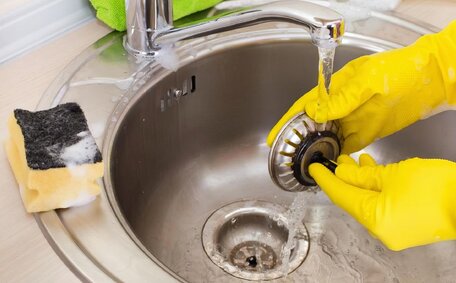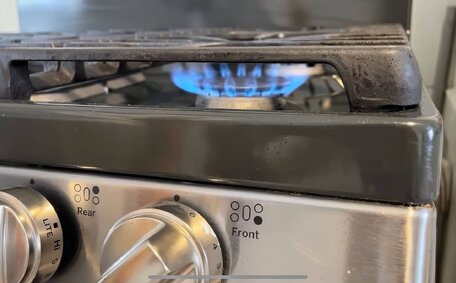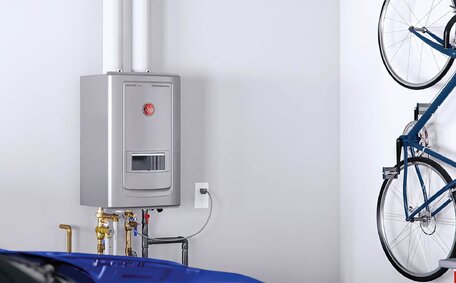Introduction to Gas Fitting in Kitchen Renovations
Gas fitting is crucial in modern kitchen renovations, particularly when upgrading to efficient natural gas appliances, including stoves and hot water systems, which enhance cost-efficiency and functionality.
As part of your renovation, a licenced gas fitter will connect new gas appliances and outlets to existing gas pipes. Certified gas fitters ensure that any necessary excavation or pipework complies with regulatory standards, securing gas safety.
When renovating your kitchen, consider the gas requirements early on. Your plumber will suggest the best gas appliances and fittings that suit your needs and budget. Factoring in gas fitting services from the start avoids potential headaches later.
Safety Considerations for Gas Work
Safety must be the primary concern when undertaking gas work during your kitchen renovation. Engaging a licensed and insured gas fitter is essential, as they possess the professional training to install, connect, and certify gas appliances safely and according to regulatory guidelines.
Gas fitters are required to shut off the gas supply at the mains before working on any existing connections. Individual shut-off valves for each appliance allow for isolation of gas supply as necessary during renovations without disrupting other appliances.
During the installation process, gas fitters strictly follow safety procedures like pressure testing pipes for leaks using leak detection fluids. All gas appliances must also be installed as per the manufacturer’s specifications.
After installing the gas system, your gas fitter will provide a Certificate of Compliance. This certifies all work was done properly and has been safety tested. Make sure to obtain this for your records, as it may be required for home insurance purposes.
By engaging reputable experts and following gas safety protocols, you can facilitate a smooth kitchen renovation that safeguards your home and loved ones.
Choosing Appropriate Gas Appliances
In choosing gas appliances for your kitchen renovation, prioritize efficiency, safety, functionality, and design. Natural gas connection for appliances like cooktops and ovens heat instantly, offer precise temperature control, and can significantly reduce energy bills.
Natural gas cooktops and ovens are superior for cooking with their quick heating and precise temperature control over electric models. Wall ovens create more room, and range cookers combine stoves and ovens for a unified appearance.
Instant gas hot water systems provide immediate access to heated water, ideal for busy kitchens. They optimise space by eliminating the storage tank typically found in conventional water systems.
When choosing appliances, check that they comply with Australian Gas Association standards. Your gas fitter will customise pipe and hose dimensions for each appliance, ensuring peak performance and safety.
Appropriate gas appliances will enhance your new kitchen’s functionality and style while reducing energy expenses.
Connecting to Gas Lines
A gas fitter can reroute existing gas lines to disconnect old appliances and connect new ones during your renovation. For homes without gas, or if your usage requirements exceed the capacity of existing pipes, new gas lines may need installation.
Consider the locations of existing plumbing and gas lines when designing your kitchen layout. While the gas fitter can reroute pipes if necessary, utilising the existing infrastructure is usually more straightforward. Run pipes to where appliances will go before installing cabinets or flooring.
For new gas line installations, the gas fitter will secure the required permits and handle the documentation. This process can involve significant excavation for laying pipes from the street to your gas meter and appliances. Proper qualifications are essential for this specialised process.
Your gas fitter will conduct pressure tests on all new gas lines and fittings to ensure there are no leaks upon connection. They’ll issue a Certificate of Compliance once satisfied everything meets strict safety standards. This gas certification could be a council requirement before renovation sign-off.
For the installation of new gas lines or appliances, seek the expertise of qualified professionals such as Pennant Hills Plumbing. With their expertise, your kitchen renovation gas works will be seamless, safe and fully compliant.
Digging and Gas Pipes During Renovations
If your kitchen renovation requires substantial digging for new gas lines or other plumbing, special care must be taken to avoid damaging existing underground pipes. 'Dial Before You Dig’ will identify utility lines on your property, enabling careful excavation to avoid them.
Trenchless pipe installation is also available, which doesn’t require extensive digging. Your gas fitter can advise the best approach for your situation.
If you do need to excavate, a certified gas fitter must perform any work relating to gas pipes, as hitting a gas line can be extremely hazardous. Always employ non-destructive vacuum excavation by trained technicians for digging near gas pipes.
After other underground work, your gas fitter can safely reroute and reconnect gas pipes. They’ll ensure correct compliance paperwork is lodged with relevant authorities regarding any gas pipe changes.
Carefully planning your works, using professional services like Dial Before You Dig, and hiring certified gas contractors will keep renovations safe while seamlessly integrating new gas appliances.
Finding a Qualified Gas Fitter
Ensure you hire a fully qualified and licensed contractor for gas fitting work during your kitchen renovation. This guarantees they have the necessary training and certification to work gas installations safely and compliantly.
There are a few key things to check when finding a gas fitter:
- Ensure the gas fitter has a valid state-issued gas fitting licence, obtained after satisfying thorough competency standards.
- Verify their sufficient insurance coverage, which safeguards you against any potential issues.
- Ensure they will issue plumbing compliance certificates on completion; this certifies work meets regulations.
- See if they offer both plumbing and gas fitting services. For kitchen renovations involving both, using one contractor can be more convenient.
- Ask for recent job references to confirm the quality of work and service.
Trusted specialists such as Pennant Hills Plumbing fulfil all required criteria. Their qualified team can handle your entire kitchen renovation gas and plumbing needs, providing certified, hassle-free service.
Planning Your Renovation
Thorough planning of your kitchen renovation is essential for maintaining timelines and budget. Numerous plumbing and gas fitting aspects must be considered from the outset:
- Consult with experienced gas fitters and plumbers for professional advice to understand the project’s scope. They can advise appliances suitable to your needs and provide cost estimates for all necessary gas and plumbing works.
- Apply for necessary permits - Your contractors can organize any required applications or approvals for gas and plumbing works.
- Consider your usage needs - Ascertain the necessity for appliances such as a gas hot water system, stove, oven, or cooktop, tailored to your household’s demands.
- Hire specialists - Have both plumbing and gas fitting works handled by fully certified contractors (ideally a single company). Obtain their compliance certificates and licencing details.
- Ensure compliance with all relevant council regulations and building codes for plumbing and gas.
- Locate gas lines early - Confirm existing gas line locations on your property first so your kitchen layout can accommodate them appropriately.
- Plan appliance layouts - Have your gas fitter and plumber provide input on optimal positions for appliances based on available connections.
- Allow access to pipes - Ensure any covered plumbing routes (wall cavities etc) can still be accessed later if ever needed for maintenance.
- Factor in all costs - Seek quotes encompassing both labour and parts for gas and plumbing work to avoid budget blowouts. Most specialists offer fixed price services.
- Consider contingency funds - Pad your budget by 5-10% for incidentals or unforeseen issues arising during renovations.
By planning ahead, sticking to council requirements, hiring reputable contractors like Pennant Hills Plumbing, and budgeting thoroughly, you can streamline your kitchen renovation gas and plumbing works for the best possible outcome.
Certifications to Look For
When hiring a gas fitter for your kitchen renovation, there are several key certifications and compliance documents to request from them for legal and safety reasons:
- Gas Fitting Licence - They must hold a current gas fitting licence for your state, authorising them to carry out gas works.
- Insurance Certificates - Request certificates showing appropriate insurance coverage for public and product liability.
- Compliance Certificates - After gas installation and testing, you ought to receive a Certificate of Compliance, verifying that all work complies with Australian Standards and regulations.
- Qualification Certificates - Ask for copies of their qualifications in gas fitting to validate their competency and training.
- - Obtain references from recent jobs as further evidence of their quality workmanship and service.
Reputable specialists like Pennant Hills Plumbing will furnish all necessary certificates and compliance paperwork on request after finishing your kitchen renovation gas installation. This guarantees you meet legal requirements while giving peace of mind that work is safe and properly executed.
Gas Fitting Licence - They must hold a current gas fitting licence for your state, authorising them to carry out gas works.Insurance Certificates - Request certificates showing appropriate insurance coverage for public and product liability.Compliance Certificates - After gas installation and testing, you ought to receive a Certificate of Compliance, verifying that all work complies with Australian Standards and regulations.Qualification Certificates - Ask for copies of their qualifications in gas fitting to validate their competency and training.





